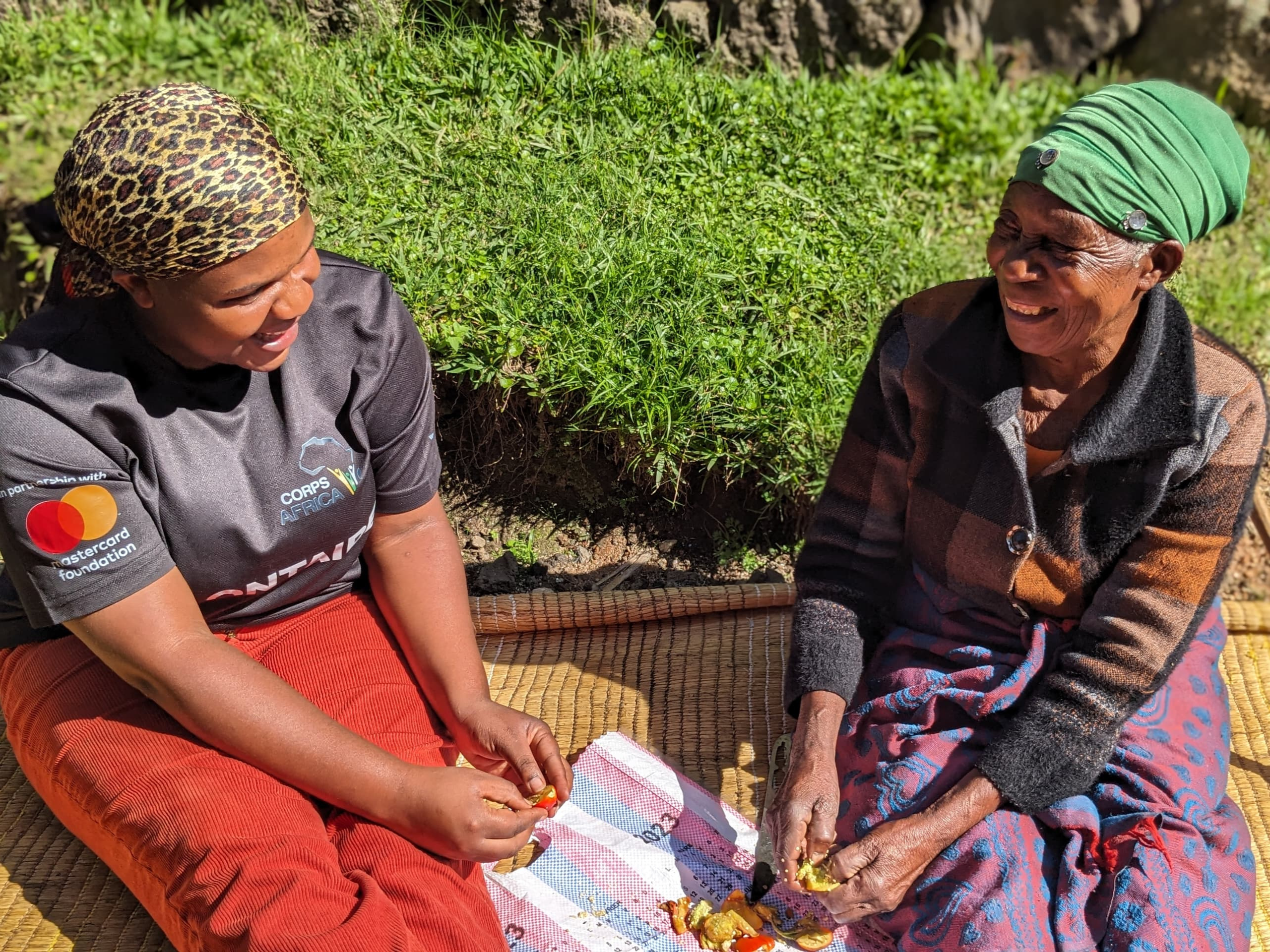Months ago, I was selected to be a CorpsAfrica trainee, where I received training on community-led development approaches, including Human-Centered Design (HCD) and Asset-Based Community-Led Development (ABCD) Although I had an academic background in sciences, these approaches introduced me to a new perspective on community development. During the training sessions, I often wondered whether I would ever get to implement these approaches and lead development initiatives in a community. It didn’t take long for that opportunity to come I became a CorpsAfrica Volunteer and started my service in Amataba Village, Rulindo District.
The two months of training were all I needed to step confidently into the development field. I developed a deep understanding of ABCD and HCD approaches and was thrilled to start implementing them in my assigned community. Our priority in Amataba Village was addressing human security issues. We tackled malnutrition by building 60 kitchen gardens for 60 households and training 100 people in kitchen garden construction. In the area of WASH (Water, Sanitation, and Hygiene), we established 10 washing stations at schools and homes. For health, we built 49 plate racks, installed 84 clotheslines, created 14 proper landfills, and renovated 15 latrines. In education, through our “Go Back to School” campaign, we helped 8 children return to school, and I covered school feeding costs for 2 of them. We also distributed 38 livestock to 38 households, fostering food security and economic growth.
These activities improved living conditions and united the community, giving people a renewed sense of strength, ability, and collective capability.
As I have been facilitating my community toward sustainable change, I have been pleased with the results of seeing all of them become self-reliant and gain an income—something that was rare before we worked together on this progress. Some members started rearing livestock, others launched bakeries or small shops selling fruits and vegetables, while some reinforced their existing businesses.
This marked an important step in our development journey. We’ve grown stronger and more determined, proving that when communities unite, sustainable development is not just a goal but a reality.

